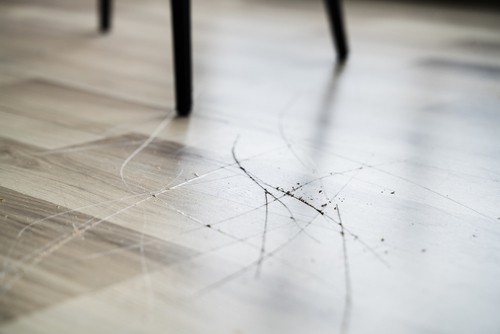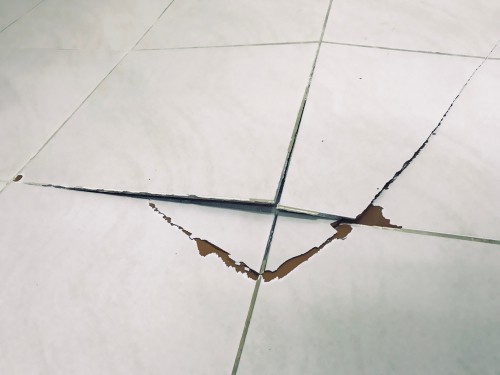
How To Remove Scratches on Vinyl Flooring?
August 19, 2022
What You Need To Know Before Buying Vinyl Flooring
October 30, 2022
Reasons why floor tiles of your premises pop up. In recent years, the installation of floor tiles has entered more homes. The convenience of these tiles cannot be ignored as they are conducive to a quick and easy home improvement project.
However, one must be wary of the particular type of tile used — as some may have popping issues that obstruct the quality and desired use for flooring material in a given space. This article will discuss the reasons why floor tiles pop up. Read on!
Table of Contents
Why Do Your Floor Tiles Pop Up?

Age of the Tiles
Although the age of the tiles is not a significant factor in modern-day flooring, it is still a feature to consider when deciding which type of tiles to use in your home, as older tiles are more susceptible to popping up than newly manufactured tiles.
Unlike other issues that affect popping up, for instance, chemical composition or structural damage, age plays a larger role in the deterioration of flooring materials.
These materials contain an organic substance known as cellulose acetate, which will break down over time with exposure to high temperatures and various environmental factors. That can lead to discoloration and other adverse effects on tile, such as popping or buckling.
Location of the Tile
Flooring tiles are known to degrade when exposed to temperatures above 130 degrees Fahrenheit, especially if installed on a concrete floor. Tile popping issues may occur in specific locations with a large amount of ventilation, such as near the kitchen or bathroom, and with floor tiles with high moisture content, like porcelain tile, which could lead to buckling.
Other than degradation, location also plays a role in whether or not popping issues will occur as some tiles are stronger than others, some materials can withstand more exposure before fading, and some materials produce an unpleasant odor when subjected to harsh environments for long periods.
Chemical Composition
When selecting an appropriate tile for your home, you should consider the chemical composition of the tile, as it will impact your overall experience and enjoyment with your newly installed flooring. Porous hard porcelain tiles are more vulnerable to acidity than other materials, such as fiberglass.
You can maintain a beautiful floor while avoiding popping issues with proper maintenance.
Those who have had porcelain tiles in their homes report that the tile has buckled after years of continuous exposure to cleaning products and acidic materials like toilet bowl cleaners and various other liquids that leave an unpleasant odor in their bathrooms and kitchens. Always use a professional cleaning company when it comes to cleaning your home and floor.
Structural Damage
The lack of structural support underneath these tiles can easily cause them to pop up, especially discoloration of the tile that appears as stained white lines and patterns instead of solid construction.
Even though these pops may appear in various forms, they are all connected to structural damage. The following instances have been reported in regard to structural damage and popping issues on hard porcelain tiles:
- When flooring is installed too close to a heater vent, the tiling will be subject to high temperatures, leading to buckling or discoloration from exposure.
- When the flooring is installed too close to a ventilation shaft, or when the tiling is installed adjacent to an air conditioning system where air blow from the ceiling
Floor tiles were installed on a concrete slab.
Cleaning chemicals and harsh cleansers used in several bathrooms may lead to unhealthy chemical compositions in these hard tile surfaces. When these chemicals are left on the tiles’ surface for prolonged periods, algae may grow and cause discoloration in areas where the tile covers edges or any other exposed surface.
When flooring is installed in a bathroom or next to a kitchen where there is a lot of moisture and water may result. That will lead to mildew on the surface of these tiles.
Flooring is installed without proper insulation or if the surface underneath has been weakened by age, water damage, and other factors. That can lead to buckling of the tiles, which are very noticeable as popping issues in certain parts of your home.
Floor tiles that are too old can be another reason these materials pop up over time. Tiles have 30 to 50 years, depending on your conditions and environment.
So even though old tiles may seem more affordable than newer ones, they will not last long and will eventually be submitted to popping issues. They can also deteriorate quickly, giving off an unpleasant odor while still in good condition.
Moisture Content
While all flooring materials are susceptible to popping problems based on exposure and environmental factors, some tend to pop up more frequently than others. The moisture content of certain floor tiles may contribute to a higher probability of popping issues occurring when compared to other materials like hard porcelain or ceramic tile.
The moisture content of flooring may be something to consider when purchasing tile, and a professional review should always be done before making your final decision.
However, hard porcelain materials tend to pop up more often than other tile types, especially ceramic ones, which are meant to withstand higher moisture conditions. The following are some instances of flooring material that has been reported as being prone to popping:
- Areas exposed to direct sunlight have an increased risk for moisture contamination. Tile installation at the entry door may lead to moisture intrusion for the first few weeks after installation. Tiles installed on an elevated landing surface can result in uneven surfaces leading to uneven floors, which stresses the tiles and increases their tendency to pop. Over time, this could also lead to tile buckling or popping.
- Floor tiles installed over a concrete floor may also be subject to high moisture levels if the tiles do not have a proper sealant or bracing between the two types of surfaces. This will eventually pop the hard porcelain material in high moisture areas like the bathroom, kitchen, and near heating vents.
Why Do Your Floor Tiles Pop Up? – Conclusion

Even though hard porcelain flooring is more vulnerable to popping than other types of tile, such as ceramic tile, it still requires a certain amount of care and maintenance so that you can enjoy its beautiful appearance for years without worrying about any cracking or discoloration.
To select the right tile for your home, it is crucial to consider a variety of factors, including the types of materials you will use to complete your flooring, how much care and maintenance you are prepared to give your floors regularly, as well as the life expectancy of each material.



